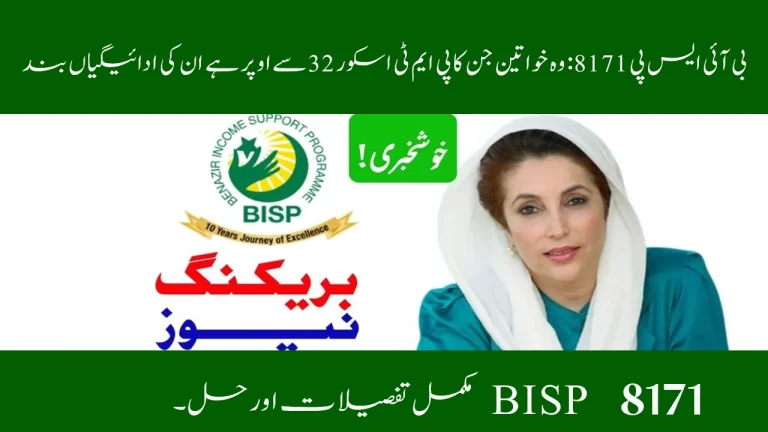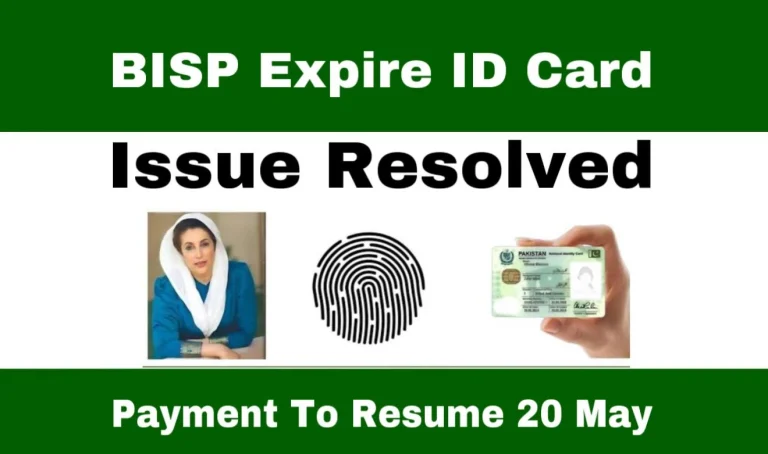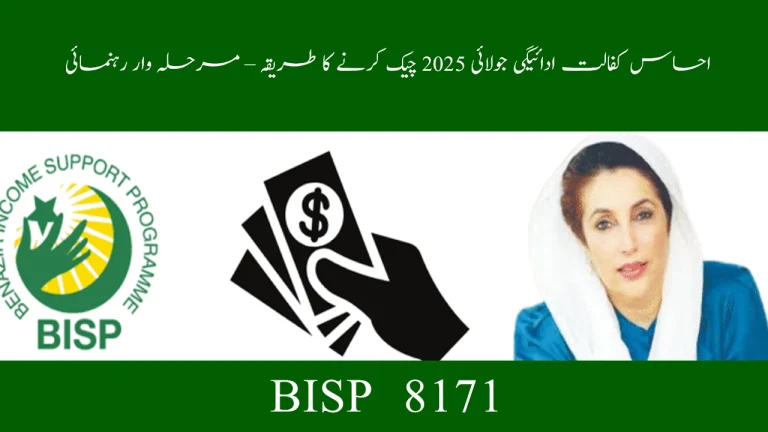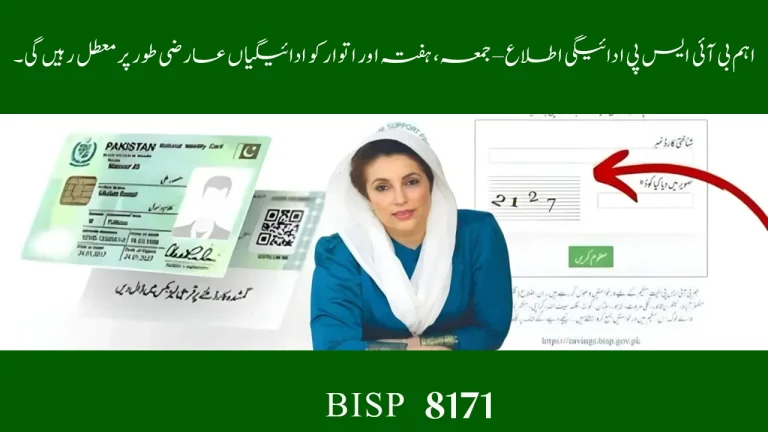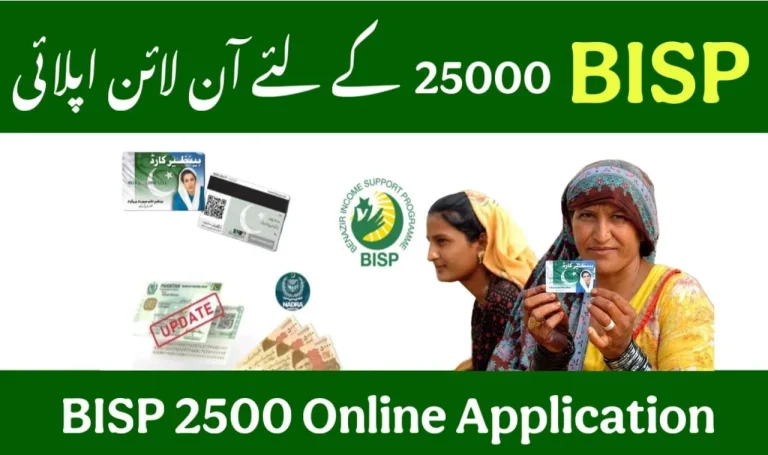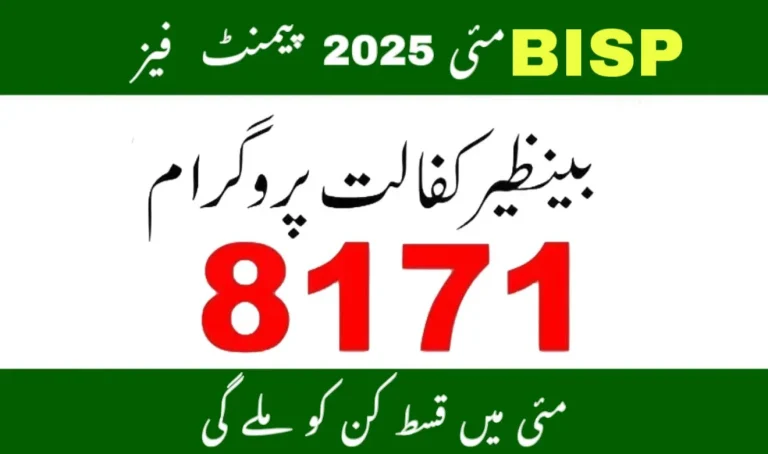Digital Literacy for BISP Women in 2025 | Empowerment Guide

Why Digital Literacy Matters for Women in BISP
Digital literacy means knowing how to use phones, apps, and online services. For many women in Pakistan, especially those getting help from the Benazir Income Support Programme (BISP), digital skills are now more important than ever.
With BISP moving many of its services online, women need to understand how to use portals, enter their information, and access their money. Learning these skills helps women:
- Take control of their own finances
- Reduce their need to rely on others
- Use digital wallets, bank accounts, and even start earning online
This is not just about using a phone. It’s about giving women the confidence and tools they need to make choices for themselves.
Main Barriers Women Face
Even with good intentions, many women still struggle to use digital tools. The biggest problems they face include:
1. Low Literacy and Education
Many women in rural or low-income areas have never been to school. They may not be able to read, which makes it hard to understand text-based websites or apps.
2. No Personal Phone or SIM
Some women don’t own a mobile phone. Others may have a phone but no SIM registered in their name. Without a personal number, they can’t get updates or use online features linked to their identity.
3. Cultural and Family Restrictions
In some homes, women are not allowed to use phones or go to bank agents alone. They may need permission just to travel outside or use public services.
4. Fear of Technology
When you’ve never used a phone or website, it can be scary. Many women worry they’ll press the wrong button or lose their money.
5. Lack of Nearby Help
Even if they want to learn, many women live far from any center or support person. This means they have no one to ask when they get stuck.
What BISP and Its Partners Are Doing
Thankfully, BISP and its partners have started special programs to support women and improve digital access.
Digital and Financial Literacy Training
Women are now being trained through simple and practical methods. These include:
- Pictorial Guides: Since many cannot read, step-by-step pictures explain how to use ATMs, BISP portals, and mobile wallets.
- Biometric Verification: Women are taught how to scan their fingerprints for safer and direct payments.
- Simulation Exercises: Some training centers offer real-life practice using demo ATMs and apps.
Skills Development Programs
Besides portal use, women are also learning general digital skills:
- Mobile vans travel to remote areas to register women and train them at their doorsteps.
- Short digital courses teach basic phone use, typing, and even how to sell things online.
- Earning from Home: Women are shown ways to earn money from freelancing or selling goods using digital platforms.
Female Community Agents
In many areas, local women are trained to become digital helpers. These female agents:
- Teach others how to use the BISP portal
- Answer questions in local languages
- Build trust in areas where men are not allowed to interact closely with women
- Act as mobile money agents so women don’t need to travel far
This is making a big difference in areas where women previously had no support.
How to Use the BISP Portal – Step by Step
Using the BISP portal can seem hard, but it’s easy once you learn it. Here’s a basic guide:
- Go to the BISP Portal
Use any phone or computer to visit the website. - Enter Your CNIC
Type your 13-digit national ID number into the correct box. - Biometric Verification
At ATMs or with agents, use your thumbprint to confirm your identity. - Check Your Balance
See if your monthly payment is ready or if there’s an issue. - Withdraw Cash
You can take out money from an ATM or through a certified agent. - Update Information
You can change your phone number, address, or other details online.
All of this can be done with help from a family member, female agent, or training center.
Key Benefits of Digital Literacy for BISP Women
When a woman learns how to use the BISP portal and digital tools, she gains much more than just money. She gains freedom. Here’s how it helps:
- Full Control Over Payments: She knows when her money arrives and doesn’t need to ask anyone else.
- Privacy and Security: No middlemen. No risk of someone else taking her money.
- Access to More Services: She can apply for health support, child education help, and even join government training schemes.
- Long-Term Growth: Learning digital skills can lead to new ways of earning and self-employment.
- Confidence: Most of all, women feel proud when they can do things on their own.
Read this : BISP July 2025: Retail Payment Centers Improve Access
What You Can Do to Help
Change begins in communities. You can play a role by:
- Encouraging female relatives to attend digital literacy sessions
- Helping someone practice logging into the BISP portal
- Sharing pictorial guides in your area
- Supporting female mobile agents in your village or town
- Spreading awareness about the benefits of digital literacy
Small steps lead to big changes.
What’s Coming Next
Pakistan is moving fast toward becoming a digital nation. This means:
- More female agents and local trainers will be hired
- BISP services will become even more user-friendly
- New training modules will be added for online earning and business skills
- Mobile apps will support voice-based instructions in local languages
- Internet access is expanding into far-off villages
By July 2025, thousands more women will be digitally active, independent, and ready for new opportunities.
People Also Ask: Common Questions from Beneficiaries
What is digital literacy for BISP women?
Digital literacy means helping women understand how to use mobile phones, apps, and the BISP portal. It includes checking payments, using ATMs, and updating personal information safely and independently.
How can women use the BISP portal?
Women can visit the BISP website, enter their CNIC, and verify their identity using biometric fingerprint scanning. They can check payments, update details, and withdraw cash from ATMs or mobile agents.
What are the main challenges women face with digital access?
The biggest challenges include low literacy levels, no personal phones, lack of digital skills, cultural restrictions, and fear of using technology without guidance.
How is BISP helping women improve digital skills?
BISP provides pictorial training guides, mobile registration vans, community-based female trainers, and digital skills programs. These efforts aim to make women confident and self-reliant in using digital tools.
Final Thoughts
Digital literacy is not a luxury. For BISP women, it’s a lifeline. When a woman knows how to use the portal, check her payment, and update her details, she becomes more than a recipient. She becomes empowered.
The goal is not just to teach women to use technology, but to help them use it with confidence—so they can lead better, more secure, and independent lives.
Read this: Benazir Nashonuma Program 2025 – Support for Pregnant Women & Children in Pakistan
Read this: BISP July Enrollment: Bridging Awareness Gaps in 2025
Disclaimer: This article is for informational purposes only. We are not affiliated with any government agency. For official updates, visit the official BISP website.
This content is based on publicly available information. We are not affiliated with BISP or any government body. Read full disclaimer here

